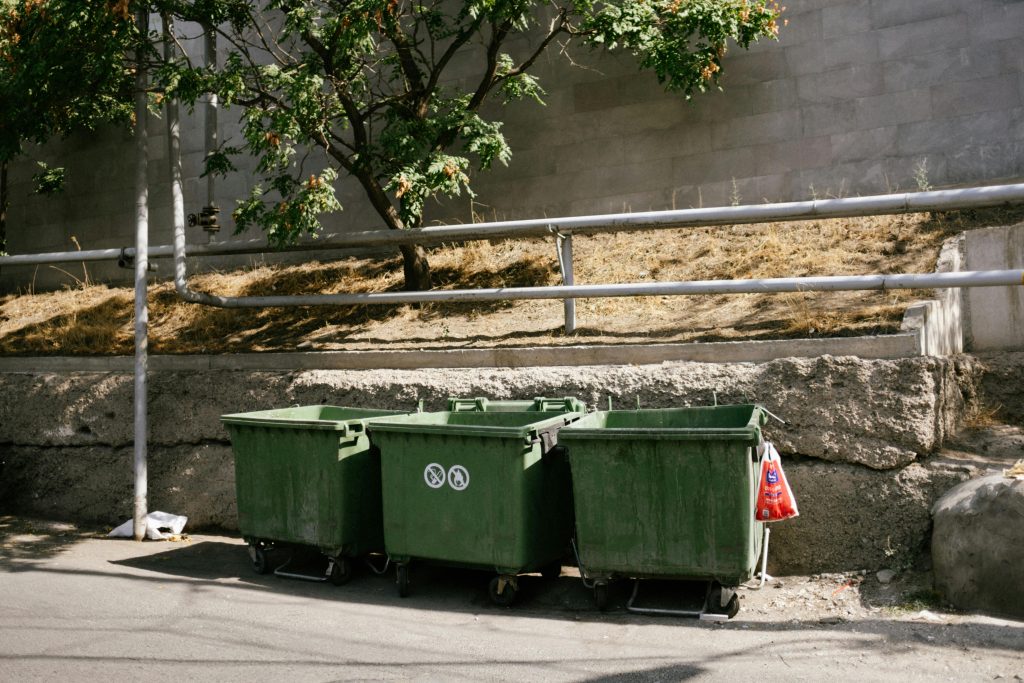In the realm of waste management, the operation of disposal systems often comes with a significant amount of noise, affecting both comfort and productivity in residential and commercial settings. From the loud hum of garbage disposals in kitchens to the rumbling of industrial waste compactors, the quest for quieter waste processing is more pertinent than ever. This comprehensive guide dives into practical strategies for reducing noise from waste disposal systems, aiming to achieve a balance between efficient waste management and a serene living or working environment.
The Impact of Noise on Waste Management Efficiency
Noise pollution in waste disposal operations isn’t just about auditory discomfort; it can also affect the efficiency and functionality of waste management practices. In residential areas, loud garbage disposals can disrupt the peace of home life, while in commercial settings, noisy waste processing can impede communication and concentration, impacting overall productivity.
1. Integrate Sound-Reducing Technology
Advancements in technology have led to the development of waste disposal units designed with noise reduction in mind.
- Insulated Units: Many modern garbage disposals and compactors come with built-in insulation to dampen noise. Look for units that advertise sound-sealing technologies.
- Low-Noise Motors: Opt for disposal units equipped with quieter, more efficient motors. These are specifically engineered to reduce vibration and, consequently, noise.
2. Regular Maintenance and Upgrades
Maintaining waste disposal equipment in top condition is crucial for minimizing noise. Wear and tear can lead to louder operation over time.
- Lubrication: Ensure moving parts are well lubricated to reduce friction, which can cause unnecessary noise.
- Tighten Connections: Loose components can rattle and amplify sound. Regularly check and tighten connections to prevent this.
- Upgrade Components: Replacing older, worn-out parts with newer, quieter components can significantly reduce noise levels.
3. Enclosure and Isolation
Creating physical barriers between the noise source and the surrounding environment can effectively minimize sound transmission.
- Sound-Proof Enclosures: For larger equipment like industrial compactors, consider installing sound-proof enclosures that can absorb and block noise.
- Anti-Vibration Pads: Placing anti-vibration pads or mats under disposal units can reduce noise by preventing vibrations from spreading.
4. Strategic Placement
The location of waste disposal units can impact how sound travels and is perceived.
- Distance: Whenever possible, place noisy equipment away from high-traffic and living areas to minimize disturbance.
- Buffer Zones: Use rooms or spaces that act as buffer zones, such as utility rooms, to house louder equipment.
Overcoming Challenges
Addressing noise in waste disposal systems often requires balancing efficiency, cost, and practicality. Innovations in silent technology offer promising solutions, but initial costs and retrofitting challenges can be significant barriers. Collaboration between manufacturers, waste management professionals, and communities is crucial for developing accessible and effective noise reduction strategies.
Engaging with Waste Disposal Companies for Custom Solutions
Waste disposal companies play a crucial role in customizing noise reduction solutions tailored to specific needs. By working closely with these companies, businesses and municipalities can leverage professional expertise to design and implement disposal systems that not only meet regulatory noise standards but also enhance the quality of life for employees and residents.
This collaboration facilitates the integration of advanced technologies and innovative strategies, ensuring waste management processes are both efficient and minimally invasive in terms of sound. Engaging with these experts can also provide valuable insights into maintenance best practices and cost-effective upgrades, further contributing to the long-term success of noise reduction efforts in waste disposal systems.
The Benefits of Quieter Waste Disposal
Reducing noise in waste disposal systems offers numerous benefits:
- Improved Living Conditions: Quieter residential areas promote a peaceful home environment, contributing to better relaxation and sleep quality.
- Enhanced Workplace Productivity: In commercial settings, reduced noise levels can improve concentration and communication among employees, boosting overall productivity.
- Positive Environmental Impact: Less noise pollution contributes to a healthier environment, aligning with broader sustainability goals.
Case Studies of Success
Several cities and businesses have successfully implemented noise reduction strategies in their waste management systems, demonstrating significant improvements in community satisfaction and operational efficiency. For instance, some urban areas have transitioned to electric garbage trucks, which operate much more quietly than traditional vehicles, reducing early morning disturbances during waste collection rounds.
Conclusion
The intersection of waste management and noise reduction represents a critical area of focus for enhancing comfort and efficiency in both residential and commercial environments. By adopting sound-reducing technologies, maintaining and upgrading equipment, strategically placing waste disposal systems, and considering the community’s needs, significant strides can be made towards achieving silent efficiency in waste disposal operations. Investing in quieter waste management solutions not only improves the quality of life but also underscores a commitment to environmental responsibility and sustainable living.

